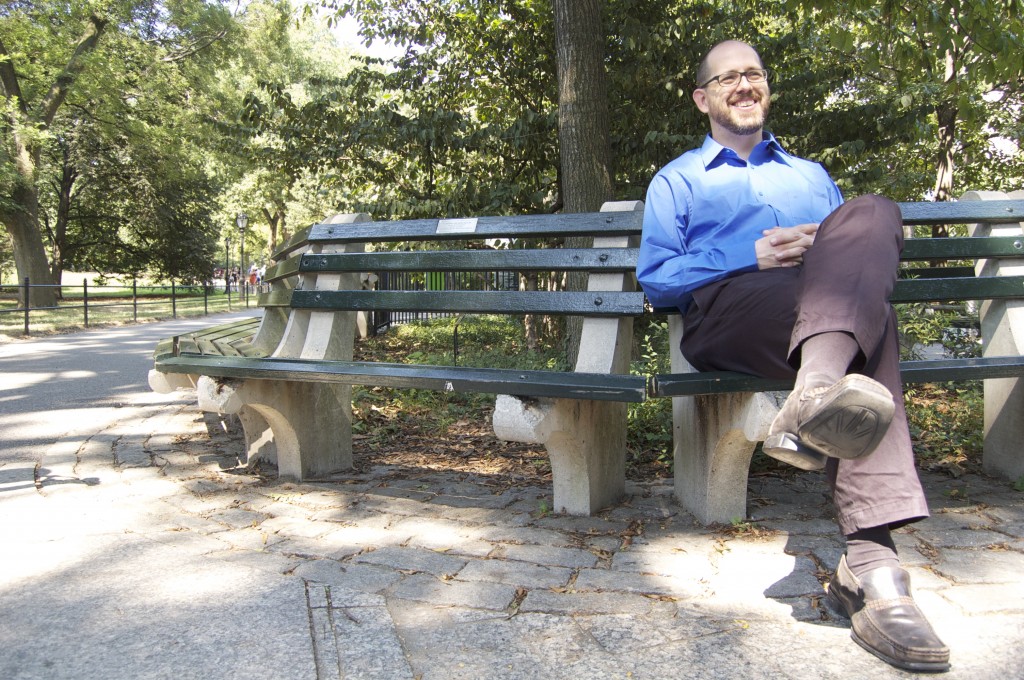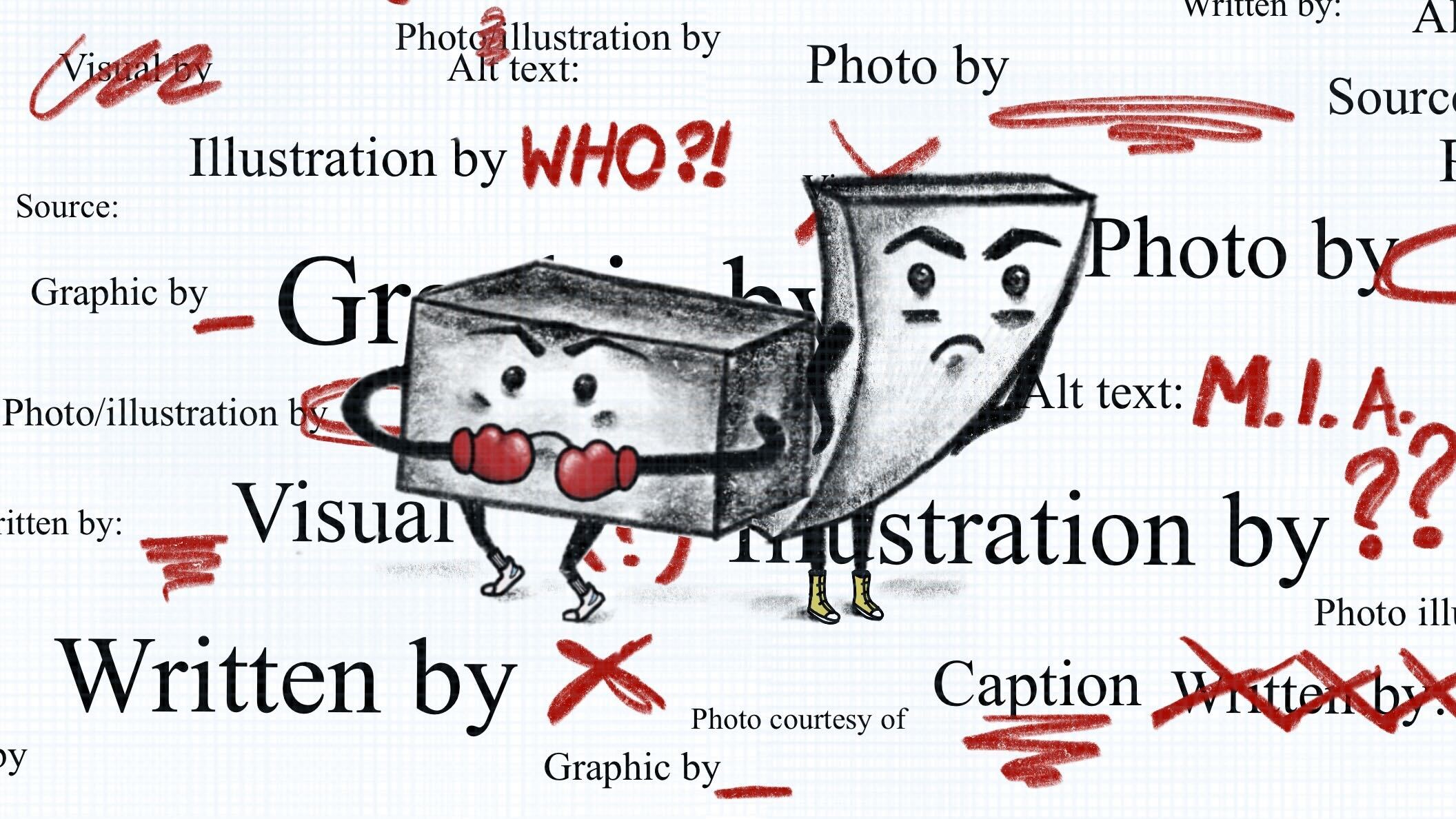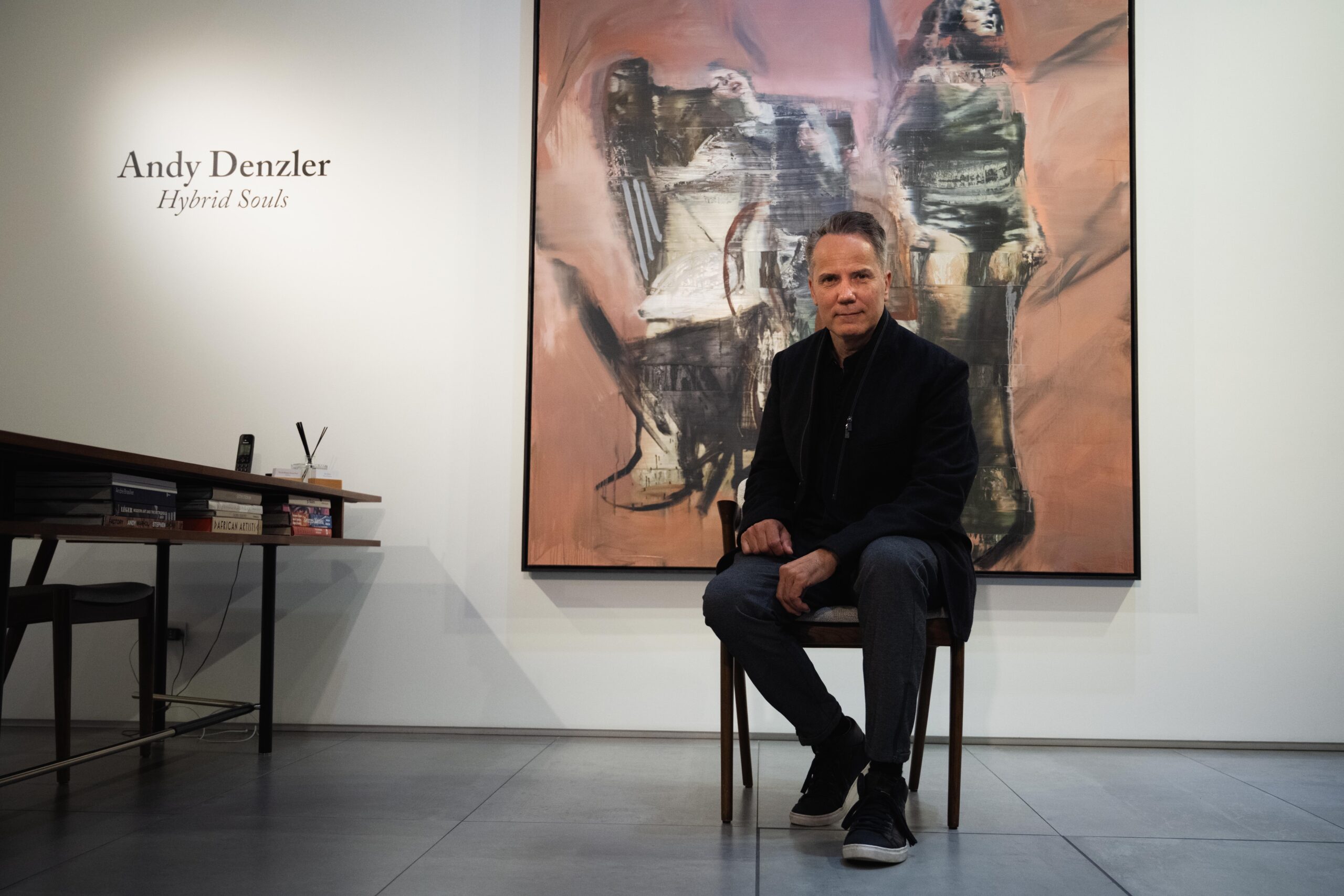An Interview with Joshua Gaylord
Deep at night on the island, the moon shines so brightly that it casts hard shadows everywhere, a brightness that rivals the sun. Only the moon is reliable in this land of darkness, while the sun is “criminal to the truth.” A young girl stands in disco-lit waters and observes electric-colored fish swim, something she has never seen at her young age of 15.
This is the opening scene to “The Reapers Are the Angels,” a 2010 novel by former New School literature professor Joshua “Alden Bell” Gaylord, and the inspiration for director Chris Milk’s feature film debut.

Besides winning the American Library Association’s Alex Award for “Reapers”, which awards books that appeal to young adults, and earning nominations for both the Philip K. Dick Award and Shirley Jackson Award in 2010, he also sold the novel’s film rights to Milk in November 2011.
“Reapers” takes place 25 years after the zombie apocalypse and focuses on a 15-year-old heroine named Temple and her fight for survival.
In addition to directing videos for President Barack Obama and Kanye West, Milk directed “The Wilderness Downtown” — the interactive Arcade Fire music video that won a 2011 Cannes Grand Prix Award for online advertising. Milk expressed interest in directing his first full-length film and chose a script to fit the soundtrack — Danger Mouse’s spaghetti western-inspired “Rome.” He decided on Gaylord’s “Reapers” as the story.
Although excited for the film, Gaylord sees it as a separate work of art from his novel. He spoke with The New School Free Press to discuss his writing style, role in the film adaptation and future writing plans.
FP: You grew up in Anaheim, California. How did it influence your writing?
JG: When I was in Anaheim growing up, it wasn’t even Anaheim. It was just called Orange County. There was no city. The place where I grew up was being annexed by Anaheim and it was really kind of like a frontier town when I was there, in the early 70s. I lived essentially on a dirt road and I was surrounded by orange groves and cattle ranches. And we had a horse; my mother rode her horse to the bank every day. It was almost like living in the wild west, and it was so strange because I think of the thing that fascinates me in all of my writing is this notion of frontiers or being on the edge of culture. In Anaheim, we were an hour away from Los Angeles. But at the same time we were practically living like itinerant farm workers, so I kind of like that idea of living on the cusp of things. The zombie book, for example, is obviously all about living on the margins of society.
FP: What is the significance behind the pen name “Alden Bell?”
JG: My middle name is actually Alden. My family is a Mayflower family, so the men have the middle name Alden since John Alden was on the Mayflower. The “Bell” is the pseudonym that the Brönte sisters used when they published because they couldn’t publish under their own names because they were both women. For example, Charlotte Brontë used the name Currer Bell, and Anne Brontë used the name Acton Bell.
FP: Besides the frontier, is there any other motif that tends to show up in your writing?
JG: My first published novel, “Hummingbirds,” was a contemporary schoolgirl novel set in New York. Obviously that is very different from the post-apocalyptic, southern Gothic, zombie novel. There are certain preoccupations though. One of them is frontier. Another one seems to be teenage girls. I must be a teenage girl trapped in the body of a 41-year-old because I keep writing about them. They’re fascinating to me. It’s all pure drama. You can’t overdramatize teenage girls. They’re always at their most dramatic, and they make for great characters because of that.
JG: I also tend to like a larger narrative voice. I am very much inspired by, not by minimalist writers like Hemingway or Raymond Carver, but more by maximalist writers like William Faulkner and Joseph Conrad. I never understood fiction writing classes where the teacher says you should be ‘efficient with your language’ and ‘you should not use words that draw attention to the writing.’ If it were up to me, I’d only write words that draw attention to the language. I love the idea of artifice in writing.
FP: What was the inspiration behind “Reapers Are the Angels?”
JG: I’d always been a fan of zombie movies. I went to see “Dawn of the Dead” and “The Evil Dead” them as a child with my father. I always loved zombies, and it occurred to me that maybe I should write a zombie book. In the genre, there is nostalgia, people looking back on the way the world used to be. They’re overwhelmed by the sense of loss. The interesting thing is when I watched these movies, I didn’t feel lost. I always thought it would be great if everything was wiped out like a blank slate. You can really build something new in that devastation. So, I wanted to write a book that takes place 25 years after the zombie apocalypse. The main character is 15 years old. She never even knew the world before, so she has no sense of nostalgia or of having lost anything. This is just her world. She’s optimistic about it. She sees beauty in it.
FP: How did Chris Milk get in contact with you for the film adaptation?
JG: It was done through Likely Story, a production company for independent films like “Eternal Sunshine of the Spotless Mind” and “Synecdoche, New York.” Chris Milk wanted to work with them. He was listening to [musician and producer] Danger Mouse’s [album entitled “Rome”]. It’s inspired by the soundtracks of spaghetti westerns, like those made famous by the composer Ennio Morricone. Milk decided that for his first major movie, he wanted to make a movie with that as a soundtrack. He didn’t actually know what movie he wanted to do. He set out to find a movie that would match the sound, so he got in touch with this production company and they sent him my book, probably along with others. He read it and he felt like that particular book fit the soundtrack.
FP: Were you already familiar with Milk’s work before you were approached?
JG: I remember I was really thrilled when I found out it was Chris Milk, who was this guy who directed that “Wilderness Downtown” video. I thought it was spectacular.
FP: You mentioned earlier that you were writing a new book.
JG: “Frontierland” is already finished. It is about growing up in rural Orange County in 1975. It’s about this tomboy girl and this aging beauty queen who get so tired of the suburbs they want to escape, so they run off together to Las Vegas. They kind of hate each other.
I’m also working on another genre book about this girl that grows up in a town where when you reach puberty, teenagers in this town — during the full moon — run wild in the street. Everyone else in the town stays indoors and lock their doors and windows because teenagers are running wild, naked and violent. It’s a metaphor for teenage-hood.
FP: Are there elements of “Rumspringa,” the Amish tradition in which youth decide between the church or the secular world?
JG: Yeah, that’s exactly what it is! Because it only lasts one year and then you stop doing this during the full moon. My character is a good girl. She’s got no mother, she’s been raised by her father. She doesn’t want to lose her image. But of course, she does. She ends up being the worst of all and killing a few people. The moral of the story is, the harder you try to contain your animalism, the more violently it will come out.







Leave a Reply